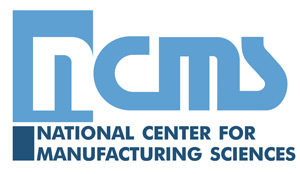Information Assurance and Cyber Controls Initiative – Phase III
NCMS Project #: 140977
Problem: Vulnerabilities can exist in all systems, networks, and applications (hardware, software, and infrastructure) and threats can be intentionally implanted (e.g., malicious code insertion) or via unintentional vulnerabilities maliciously exploited (e.g., poor quality or fragile software). Consequences can be loss of critical data and technology, software vulnerabilities that are targeted or surface in sustainment, and exploitation of development and manufacturing supply chain, resulting in maintenance and sustainment delays, errors, and other challenges. This can further result in damage to national security or critical warfighting capability or a degradation of weapon systems and readiness.
Benefit: Industry will understand what developmental requirements and certifications are required to sustain, test, provision, and operate in this construct. By utilizing the cloud, organizations will need fewer pieces of hardware that are expensive and can break, meaning that there will be more reliance on flexible software performing more of the heavy lifting. This centralized cloud space can bring together previously isolated systems helping them work in tandem and feed off each other’s security upgrades, protocols, and hardware. This security system has the possibility of being integrated throughout the Services and interoperable enterprise-wide. This may translate into common security standards between civilian and government partners taking on a risk assessment and management approach in real time.
Solution/Approach: While the focus of Phase I and II were on the Marine Corps’ version modernization and roll out of GCSS-MC R12.2 and the Logistics Portfolio, Phase III will move to full sustainment of the Oracle Version upgrade in order to maintain certification and achieve Authority to Operate in the Cloud Computing Hosting environment. The intent of this initiative is to continue working toward securing enterprise resource management and planning systems by developing and demonstrating cloud-based software programs that modernize capabilities and fix gaps and ensure optimum invulnerability.
Impact on Warfighter:
- Expedited migration of secure cloud computing capability into the DoD
- Reduced risk and vulnerabilities
- Increase cyber defense posture
- Improve national security
DOD Participation:
- U.S. Marine Corps Systems Command (GCSS-MC PMO)
- U.S. Marine Corps Systems Command – Systems Engineering, Interoperability, Architectures – Technology (SIAT)
Industry Participation:
- Anglicotech, LLC
- NCMS
Benefit Area(s):
- Cost savings
- Obsolescence management and continued maintenance capability
- Maintenance management improvement
Focus Area:
- Business processes/partnerships
